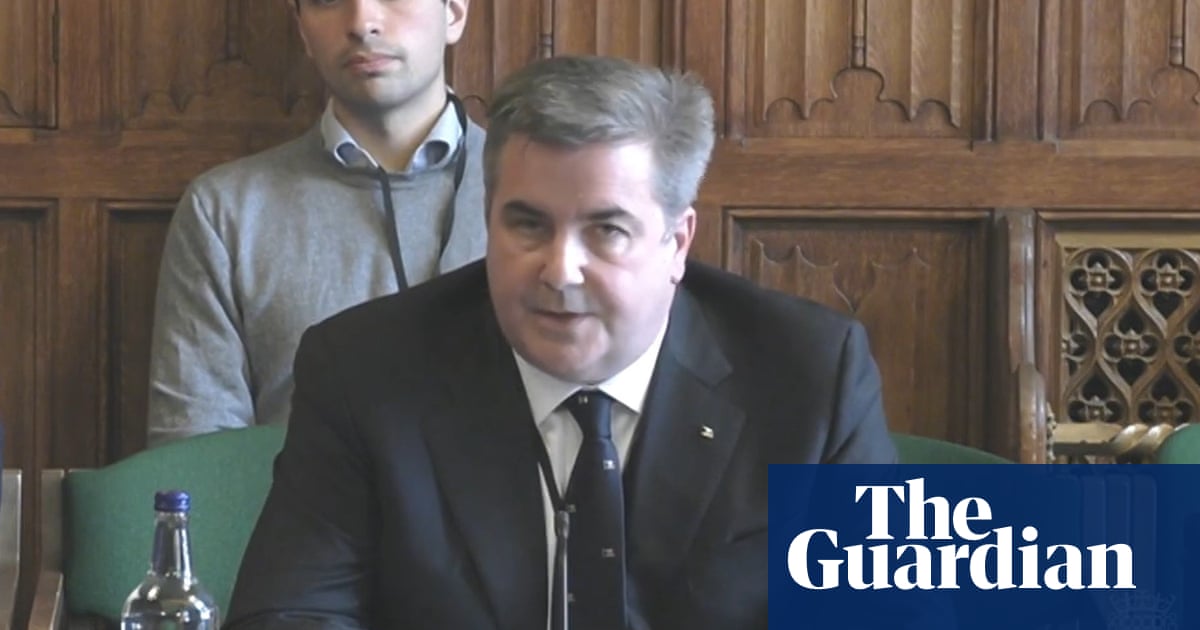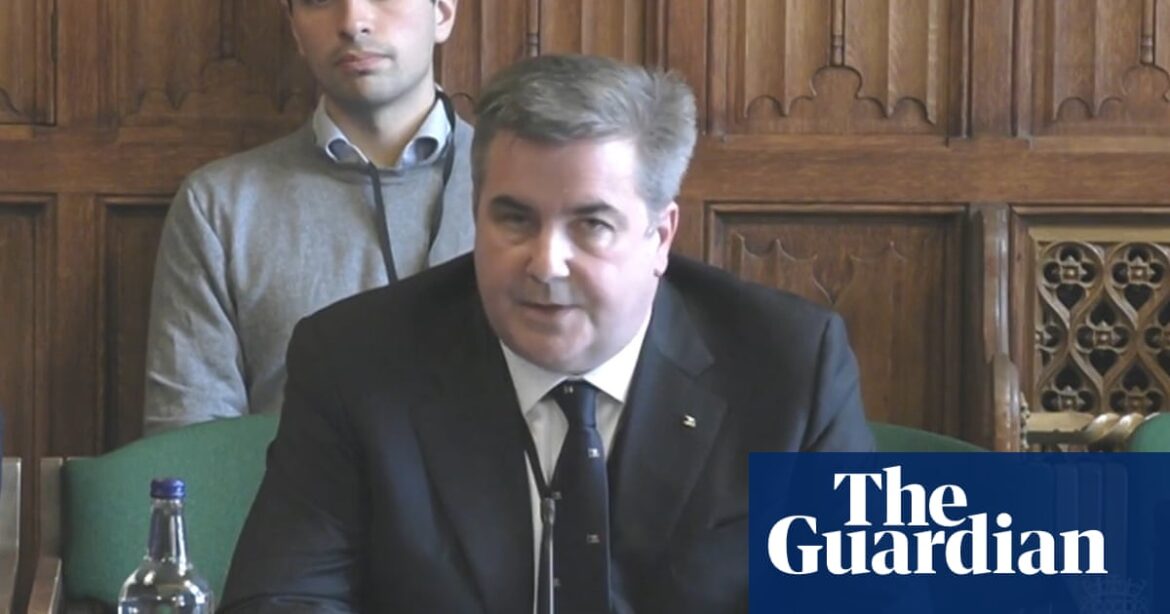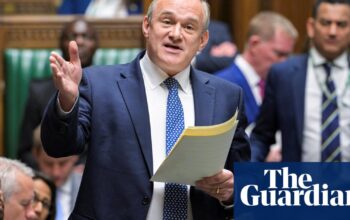
The boss of P&O Ferries has been asked if he is “a pirate” who appears to be “robbing staff blind” – as he confirmed to MPs that the group’s seafarers had been receiving pay rates even lower than he had previously told parliament.
Peter Hebblethwaite previously appeared in front of a joint transport and business committee in March 2022 to respond to P&O Ferries sacking 786 staff and replacing them with low-paid agency workers.
At the time he told parliamentarians that the lowest-paid agency worker would receive £5.15 an hour – only for a Guardian and ITV News investigation this March to reveal how some P&O seafarers were receiving an hourly rate as low as £4.87.
On Tuesday, in an appearance before the business and trade committee, which was prompted by the reports, the chair, Liam Byrne MP, opened by asking Hebblethwaite: “Are you basically a modern-day pirate? … You seem to be robbing your staff blind.”
The ferry group’s chief executive said without the mass sackings “P&O would not be here today” – before admitting “the lowest, fully consolidated hourly pay is about £4.87”.
The Guardian and ITV News had asked P&O specifically about a £4.87 an hour figure less than two months ago, when a P&O spokesperson said: “We do not recognise the pay rates that you are referencing. No member of our crew on our Dover-Calais vessels earns less than $2,400 per month, equivalent to £5.20 per hour.”
The UK minimum wage is £11.44 an hour – but the rates do not apply to maritime workers employed by an overseas agency who work on foreign-registered ships in international waters. As P&O uses that model, the pay rates onboard its vessels are legal.
Asked whether he could live on £4.87 an hour, Hebblethwaite replied: “No, I couldn’t.”
In March, as part of its response to the 2022 dismissals, France signed a decree that would force cross-Channel operators to pay their workers the French minimum wage of at least €11.65 (£9.95) an hour. A similar UK law is expected to come into force this summer and P&O told MPs it would abide by both sets of legislation.
The Guardian and ITV’s reporting also highlighted how the low-cost crew – who had been hired via a Malta-based employment agency and came from countries including India, the Philippines and Malaysia – were understood to have been working for months on the ships without a day off. The workers said they had to remain onboard until their contract ended, with one describing the experience as like being in “jail”.
Hebblethwaite appeared to dispute this and told the committee P&O “contracted” cross-Channel ferry staff on the basis of seven days off a month.
Byrne said: “Both ITV and the Guardian found people working 12-hour shifts, seven days a week, for up to 17 weeks at a time without a day off, and without permission to leave the ship. You’ve just told the committee that people have seven days off a month.”
Hebblethwaite replied: “The maritime labour convention requires seafarers to have a minimum of two and a half days off per month. On Dover-Calais, we contract for seven days off.”
Bryne said: “So the conclusions of this investigation, from ITV and Guardian, are wrong?” After a four-second silence, Byrne pressed: “Is that a yes?”
Hebblethwaite said: “I can only tell you what we do.”
after newsletter promotion
After the select committee session, a series of P&O seafarers contacted the Guardian and ITV News to reiterate that they did not receive seven days off a month.
One said they had “never had seven days off per month across the Channel, you can trust us”.
After the committee session closed, the Guardian and ITV News asked P&O how many days off a month seafarers working on P&O cross-Channel ferries typically received – and if the company had misled parliament.
P&O did not provide a response to either question but Hebblethwaite had told the committee “the terms under which the crew is employed is set by the crewing agent”.
P&O’s chief executive said he earned a £325,000 basic salary and received an £183,000 bonus in April 2023. “I reflected on accepting that payment. But ultimately I did decide to accept it,” he said. “I do recognise it is not a decision that everybody would have made.”
He also told MPs: “We recognise that we made a very difficult decision two years ago – one that was legal and one that I wish we had never ever had to make in the first place.
“But we also have to acknowledge that without that difficult decision P&O would not be here today and we would not have been able to preserve the 2,000 jobs we have been able to preserve, take the 135,000 tonnes of CO2 emissions that we have taken out of our carbon footprint, open up new routes and continue to serve the most important trade route between the UK and the continent.”
Hebblethwaite added that P&O “didn’t sack anyone [in 2022]. We did initiate a redundancy programme” and that the welfare of crew onboard the company’s ships was “second to none”.
Source: theguardian.com



